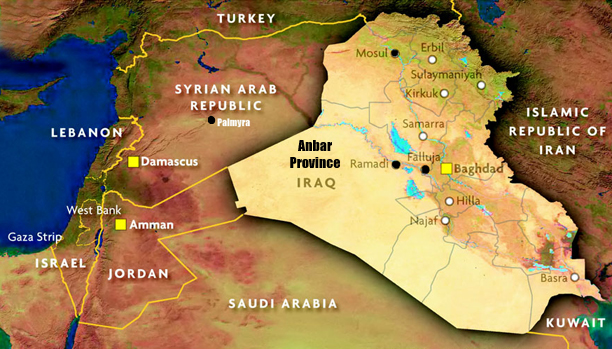Jeb Bush had a tough time when a female college student told him his brother, George, and his shock-and-awe debacle in Iraq had created ISIS. Jeb winced and did some ducking and covering. He’d already fumbled a question from Megyn Kelly of Fox News that, if he knew what we know now, would he have done what his brother did. He said he would have also invaded Iraq and that his older brother was one of his campaign’s foreign policy advisers.
Once Jeb realized he’d stumbled into a hornet’s nest, he quickly back-peddled and said he had not understood Kelly’s question. He said he thought he was being asked if he didn’t know now what his brother didn’t know then, would he invade Iraq? In other words, are you, Jeb, as cavalier and oblivious to reality as your brother was? Suddenly realizing how much bad freight his brother’s war carried, he revised his answer: Of course he would not have invaded Iraq.
There was a rare element of accountability, here, something rarely seen vis-à-vis the Iraq War — or wars like Vietnam, for that matter. The question would not have plagued another candidate quite as much. Beyond voting for the war, which Hillary Clinton did and now calls a “mistake,” even before 9/11 Jeb Bush was part of the Project For A New American Century, which functioned as a blueprint for the invasion of Iraq. The PNAC fellows were about sustaining America as ruler of the world; there is little indication they were very much concerned about the truth.
 UNHCR map of Iraq; ISIS controls cities with black dots
UNHCR map of Iraq; ISIS controls cities with black dots
Last week, thanks to a sand storm that grounded US planes, ISIS (or the Islamic State) was able to take Ramadi, the capital of Anbar Province. Since then, they’ve taken the ancient Syrian city of Palmyra. ISIS already controlled Falluja, a small city between Ramadi and Baghdad, and Mosul to the north — plus a lot of sand in between. As is its inclination, the ISIS forces reportedly executed a lot of people in Ramadi. No doubt they did the same in Palmyra.
The Islamic State is largely synonymous with the Sunni dominated Anbar Province in western Iraq; its control extends into Syria. Much of the top leadership of the Islamic State is made up of former Saddam generals angry about US Proconsul Paul Bremmer’s cavalier decision to completely eliminate the Iraqi army. In the same misguided spirit, Bremmer also disbanded the Bath Party. These decisions, taken in concert, amounted to one of the stupidest foreign policy decisions of modern times, according to the national security consultant Richard Clarke.
So who should be held accountable? Or better yet, who’s gonna ever get it right?
George W. Bush’s post-9/11 decision to militarily wreck Iraq over non-existent nuclear weapons, who will control Iraqi oil and the delusional idea of introducing Jeffersonian democracy into Iraq has now shape-shifted into a truly horrendous monster. Shock-and-awe has gone through the meat-grinder and come out the other end as well-organized psychopathic reaction. What goes around, comes around. The plot gets really absurd when you consider that while the United States government is frantic to counter ISIS it feels obliged to check ISIS’s natural enemy, Iraqi Shiites and Iran, who want nothing more than to crush ISIS. Anbar Province Sunnis aligned with the United States are too weak and insignificant to counter ISIS. Shiite militias controlled by the Baghdad government (militias that fought US troops during the war) have been employed in Anbar in a limited fashion. The US demands these Shiite militias be controlled by the Baghdad government (which is allied with Iran) and not directly by Iranians. To completely unleash the Shiite militias in Anbar would likely lead to a terrible sectarian bloodbath and all sorts of unforeseen consequences and greater war in the region.
It’s hard to imagine the growing perception of the Iraq War as debacle being altered when it hits the history books. True, it ended the Saddam regime, but at the cost of empowering our worst enemy and creating a worse nightmare than Saddam. The US is now performing pretzel-like contortions in Anbar, doing the best it can to PR spin a debacle into a success.
Meanwhile, US right-wing militarists insist on seeing the problem as caused by President Obama. He originally opposed the war and, as promised, eventually withdrew US troops from Iraq. Now, over ISIS, the whole drumbeat to war seems to be happening again. We’re told in anxious, angry tones that if you thought Afghanistan was a haven for terrorists in 2001, the Islamic State in 2015 is much worse and on steroids. With so much military secrecy at play and so much political dishonesty so potentially and intimately connected to the fear-oriented, war-mongering impulse, it’s deja-vu all over again. Fear is rising again, and when Fear takes over it’s only a matter of time before the delusions come out and calls for reason and proportionate reaction are trumped by calls for preemptive attack.
It’s good to periodically remind ourselves of Susan Sontag’s plea after 9/11: “By all means let’s mourn together; but let’s not be stupid together.” Sontag’s plea might translate today as this: By all means, let’s recognize that whether the United States spawned it or not the Islamic State is indeed a monster regime whose absence from the world would be a great improvement. OK. But following up on a military debacle with more of the same is to fully assume the status of “stupid” in Sontag’s equation. If US arrogance and blundering was the fertile ground that nurtured the Islamic State, another round of US arrogance and blundering can only make things even worse.
With the election “silly season” coming into full swing, ISIS is going to be a big topic. Who exactly caused the US to lose the high ground in Iraq? Was it the guy who chose to pursue the war — or the guy who said from the beginning he was against the war and always said he wanted to end it? Do we blame those who opened the Pandora’s Box in Iraq or do we blame those who fought from the beginning that the box not be opened? It’s one of many variants of the stabbed-in-the-back myth: Blame those who opposed the war for the sins of those who set the whole runaway war train in motion. The point is, there’s a profound argument at play, here, between an imperial militarist class that never errs and those who would choose a different path to peace and prosperity that includes shifting military funds to domestic problems.
The antiwar movement tried to make this case after 9/11 and in the run-up to the Iraq War. Violence against other people has consequences, many of them unforeseen thanks to the effects of self-delusion. This is certainly why the Vietnam War went off the rails: Decisions were made not on sober intelligence but upon wish-fulfillment. The United States always gets what it wants, and our leaders don’t want to hear that the on-the-ground reality won’t allow what they want. As for 9/11, the anti-war movement tried to make cause and effect linkages between US military foreign policy and the 9/11 attacks, but those linkages remain censored thinking in mainstream America.
Mike Caddell of Radio-Free Kansas reports that voices on the militarist right in his conservative state can’t fathom how ISIS could take Ramadi in the face of US aerial bombing. It must be because Obama is a Kenyan socialist. These Kansas conservatives apparently did not understand that Iraqis might be smart enough to attack during a sandstorm that would ground US planes. Such a mundane game-changer raises the horror that looms underneath all this: the specter of the US as an impotent giant.
Many Americans have come to see aerial bombing as magical. If an international problem arises and the culprit can’t be reasoned with or bought off, many accept it as a natural response to send in bomb-laden F16s to fix the problem. This assumption is so deep-seated in the American psyche these days that not sending in bombers is automatically seen by some as bad leadership. Obama went against that with Syria, in what was arguably a profile in courage. Not bombing our way back into Ramadi, thus killing lots of innocent civilians, would be another example of smart leadership. Accept that this is a regional problem we cannot solve, that we can only work to avoid a greater war.
 A British bomber over Iraq in 1920
A British bomber over Iraq in 1920
Aerial bombing, of course, was first developed by the British in Iraq circa 1920. Winston Churchill even advocated gassing Iraqi villages from the air to control them. From Nicholson Baker’s Human Smoke, here’s Royal Wing Commander J. A. Chamier on dealing with Iraqi rebellions:
“The attack with bombs and machine guns must be relentless and unremitting and carried on continuously by day and night, on houses, inhabitants, crops and cattle. This sounds brutal, I know, but it must be made brutal to start with. The threat alone in the future will prove efficacious if the lesson is once properly learnt.” Think shock-and-awe 2003. The same brutal logic was at work: wogs only understand violence, so make your first impression especially memorable. Back in 1920, the British were still working in the realm of what William Polk in Violent Politics says is the only tried-and-true counter-insurgency tactic: Scorched earth.
It all comes down to exactly what it is our military/police/surveillance state is defending. It doesn’t seem to be the bottom-up America of Woody Guthrie. That America is awash in troubles — from the effects of neglected and decaying infrastructure; the growing challenges from man-made climate change; a worsening, unfair plutocratic economy; the mass incarceration of poor African American citizens; the dehumanizing effects of technology; a Rube Goldberg health care system in which corporate profits trump citizen needs; and, finally, an education system put to shame by other developed nations. And that’s only the beginning.
Instead, what our military is sustaining is an ever-more-vulnerable empire set loose by Teddy Roosevelt at the turn of the 20th century and given a grand boost mid-century at the end of World War Two. At what point does such an empire begin to destroy the society and culture at its core?
The truth is, the only reason ISIS wants to attack us is because we attacked them first and wrecked their homeland. The same was true for al Qaeda, which rose out of US military alignment with Saudi Arabia and its oil. No one is suggesting the United States give up its power, become a hermit nation and no longer protect itself. Power isn’t a bad thing; neither is sophisticated intelligence or a responsible military. The point is to stop giving so many people in the world reasons to hate us.
Republicans and many Democrats like to preach that renewing America’s slipping greatness is a matter of re-energizing a militaristic capacity that strikes fear in the people of the world. The realities of the coming competitive world would seem to dictate another response, one that doesn’t ignore violent threats, but one that ratchets down the imperial militarism and one that belatedly addresses the nation’s many domestic shortcomings — to make the US a better world citizen and, also, to be more competitive in the world.
This is not a new argument. The problem is just becoming more acute.
